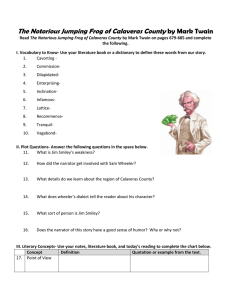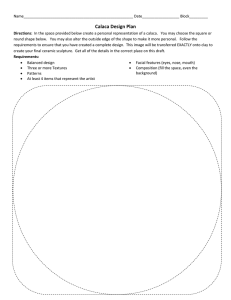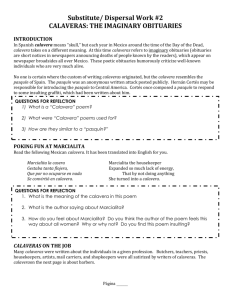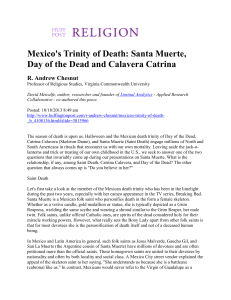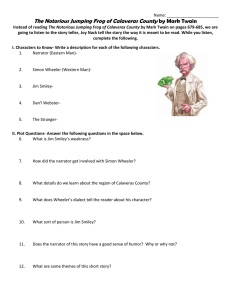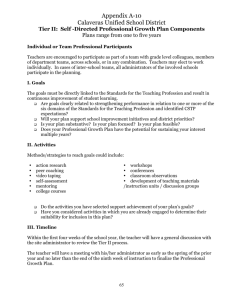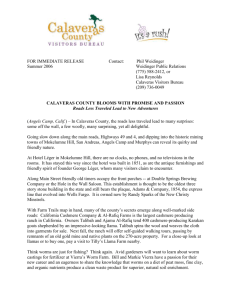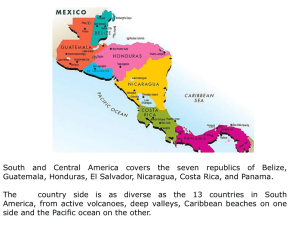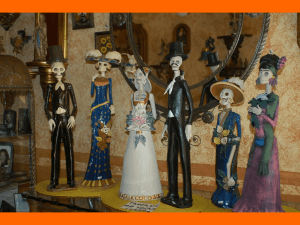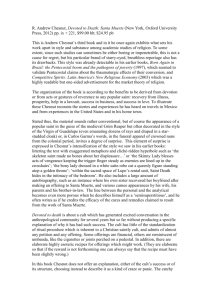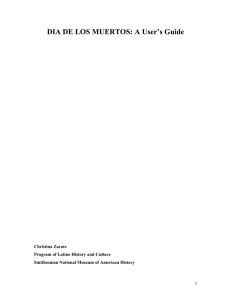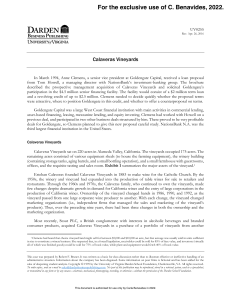La Ofrenda
advertisement
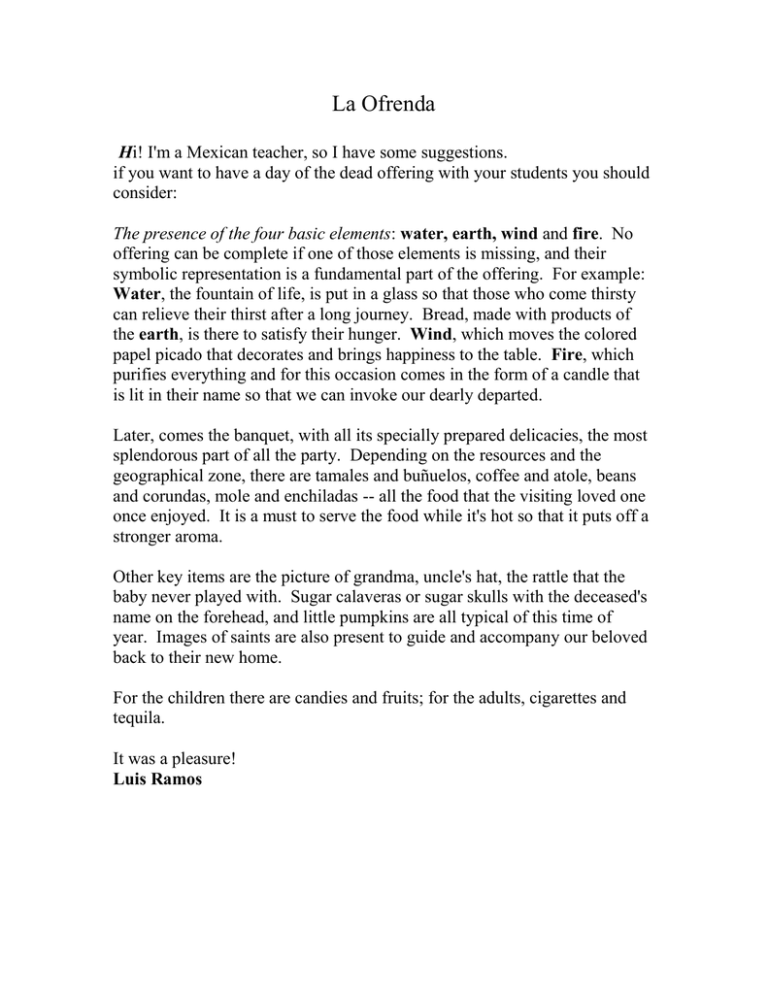
La Ofrenda Hi! I'm a Mexican teacher, so I have some suggestions. if you want to have a day of the dead offering with your students you should consider: The presence of the four basic elements: water, earth, wind and fire. No offering can be complete if one of those elements is missing, and their symbolic representation is a fundamental part of the offering. For example: Water, the fountain of life, is put in a glass so that those who come thirsty can relieve their thirst after a long journey. Bread, made with products of the earth, is there to satisfy their hunger. Wind, which moves the colored papel picado that decorates and brings happiness to the table. Fire, which purifies everything and for this occasion comes in the form of a candle that is lit in their name so that we can invoke our dearly departed. Later, comes the banquet, with all its specially prepared delicacies, the most splendorous part of all the party. Depending on the resources and the geographical zone, there are tamales and buñuelos, coffee and atole, beans and corundas, mole and enchiladas -- all the food that the visiting loved one once enjoyed. It is a must to serve the food while it's hot so that it puts off a stronger aroma. Other key items are the picture of grandma, uncle's hat, the rattle that the baby never played with. Sugar calaveras or sugar skulls with the deceased's name on the forehead, and little pumpkins are all typical of this time of year. Images of saints are also present to guide and accompany our beloved back to their new home. For the children there are candies and fruits; for the adults, cigarettes and tequila. It was a pleasure! Luis Ramos CALAVERAS" POEM (Traditional) (from Internet site at http://star.ucc.nau.edu /FLI/DDLM/Poem3.html) Ahi viene el agua Hear comes the water por la ladera, down the slope y se me moja and my skull mi calavera. is getting wet. La muerte calaca, Death, a skeleton ni gorda ni flaca. neither fat nor skinny. La muerte casera, A homemade skeleton pegada con cera. stuck together with wax.
